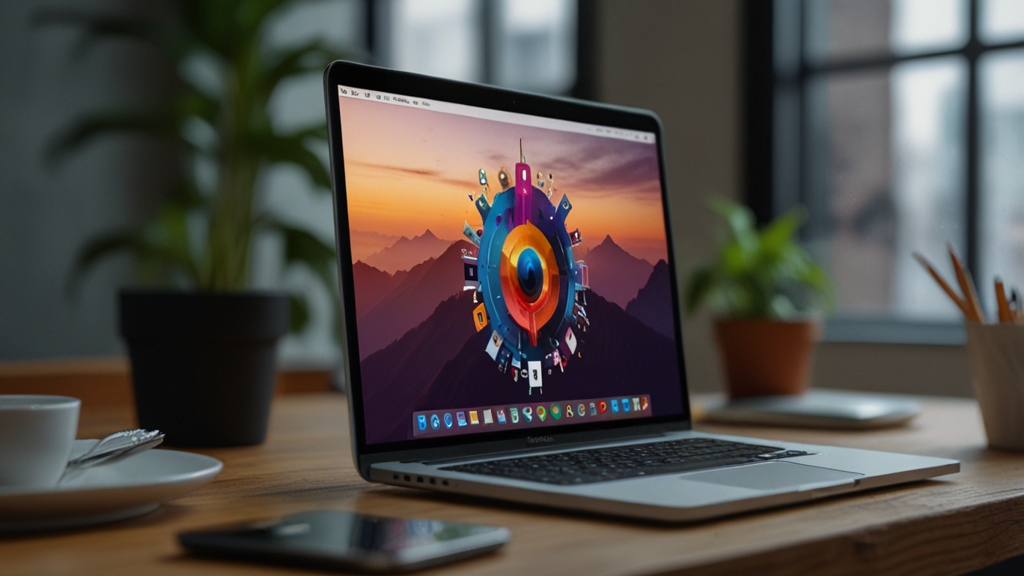Mastering Cryptography: Tips to Enhance Your Personal Security
In an era where data breaches and cyber threats are rampant, mastering cryptography has become essential to bolster personal security. Cryptography, the science of securing communication, can be incredibly effective in keeping your digital information safe from prying eyes. Here are some crucial tips to help you enhance your personal security through cryptography.
1. Use Strong, Unique Passwords
One of the simplest yet most effective ways to protect your data is by using strong, unique passwords for each of your accounts. A strong password typically includes a mix of upper and lower case letters, numbers, and special characters. Avoid using easily guessed information like birthdays, common words, or keyboard patterns.
"A strong password is your first line of defense against unauthorized access." - Cybersecurity Expert
Consider using a password manager to generate and store your passwords securely. This tool can help you avoid the pitfall of reusing passwords across multiple sites, a common practice that can jeopardize your security.
2. Enable Two-Factor Authentication (2FA)
Two-factor authentication adds an extra layer of security to your accounts by requiring not only a password but also a second form of verification. This could be a code sent to your phone, an authentication app, or even a physical hardware token. 2FA ensures that even if someone steals your password, they would still need the second factor to gain access.
Enable 2FA on all your critical accounts, including email, social media, and financial services. This small step can go a long way in protecting your digital life.
3. Utilize End-to-End Encryption for Communications
End-to-end encryption ensures that only you and the person you are communicating with can read the messages being sent. Many messaging apps offer this feature, ensuring that no one, not even the app provider, can intercept or read your conversations.
When choosing a messaging app, look for ones that offer end-to-end encryption by default, such as Signal or WhatsApp. This ensures that your personal conversations remain private and secure.
4. Encrypt Your Devices
Encrypting your devices ensures that your data is protected even if your device is lost or stolen. Both Windows and macOS offer built-in encryption tools (BitLocker and FileVault, respectively). Once enabled, these tools encrypt all the data on your device, making it unreadable to anyone who does not have the decryption key.
"Device encryption is a critical step in protecting your data from physical theft." - Information Security Specialist
Make it a habit to enable encryption on all your devices, including smartphones and tablets. This adds an essential layer of security for your personal data.
5. Regularly Update Software and Firmware
Outdated software and firmware can have vulnerabilities that attackers may exploit. Regularly updating your software, including operating systems, applications, and firmware, ensures you have the latest security patches and fixes.
Enable automatic updates whenever possible, or set reminders to check for updates regularly. This proactive step helps mitigate the risks posed by known vulnerabilities.
6. Educate Yourself on Phishing Attacks
Phishing attacks are attempts to deceive you into giving away personal information, such as passwords or financial details, by pretending to be a trusted entity. These attacks are often carried out via email, text messages, or fraudulent websites.
To protect yourself from phishing, be cautious of unsolicited communications asking for sensitive information. Always verify the sender's identity and hover over links to check their destination before clicking. Education and vigilance are your best defenses against these types of attacks.
Conclusion
Mastering the basics of cryptography and implementing these essential tips can significantly enhance your personal security. Strong, unique passwords, two-factor authentication, end-to-end encryption, device encryption, regular updates, and awareness of phishing attacks are fundamental practices in protecting your digital life. By taking these proactive steps, you will be well on your way to securing your personal information in an increasingly digital world.
"Proactive measures in cryptography and data security can save you from potential digital nightmares." - Security Analyst








